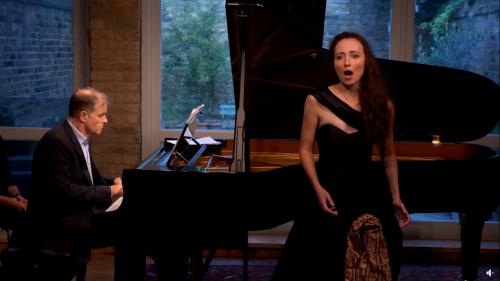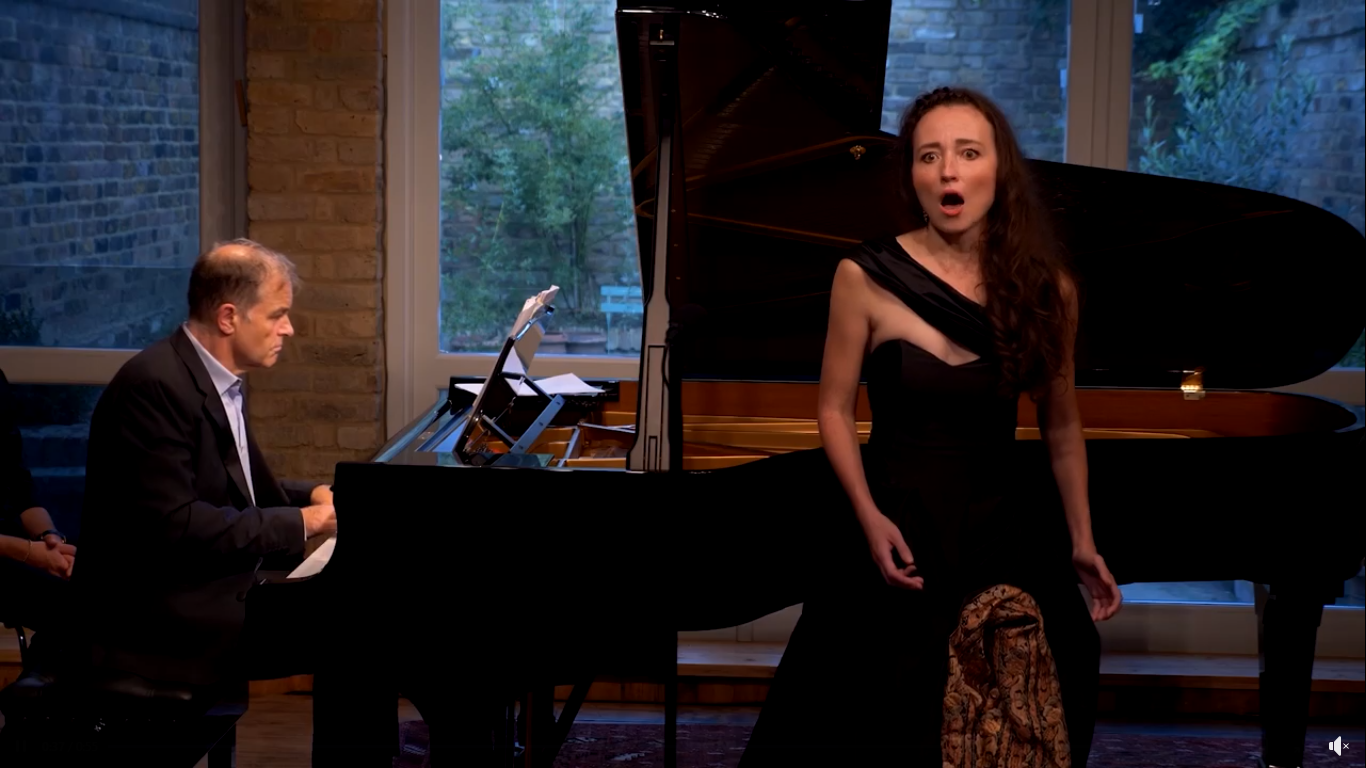
 United States Schubert, Winterreise: Fleur Barron (mezzo-soprano), Julius Drake (piano). Chamber Music Northwest, Portland, Oregon, and Razumovsky Academy, London. Livestream available to 5.3.2021. (RP)
United States Schubert, Winterreise: Fleur Barron (mezzo-soprano), Julius Drake (piano). Chamber Music Northwest, Portland, Oregon, and Razumovsky Academy, London. Livestream available to 5.3.2021. (RP)

In a recent blog post, Fleur Barron wrote that when Chamber Music Northwest in Portland approached her and pianist Julius Drake to record a recital for its digital concert series, Schubert’s Winterreise was their unassailable choice. It is the story of a young man who has lost in love, and he sets out on a solitary trek across a barren winter landscape, consumed by his own suffering almost to the point of madness. Only in the final song of the cycle does he encounter another person, one who is perhaps even more alone and desperate, and he begins to imagine a future for himself.
Undoubtedly, there are those who might take issue with the notion that Schubert’s sublime yet emotionally devastating cycle is the perfect fit for a winter when 500,000 people in the United States alone have died from the coronavirus. There is no doubt, however, that the emotions that course though the twenty-four songs are universal and felt by many at present: the traveler’s path is not linear, and his fate is uncertain. And, like that tormented young man, a lucky few are experiencing hope for the first time after months of crisis.
The Singaporean-British mezzo-soprano has made waves on both sides of the Atlantic for her remarkable voice, impeccable musicianship and probing interpretations of a wide expanse of the repertoire. Barron is a relative newcomer to Winterreise, having performed it a handful of times since 2018. On the other hand, Drake, who is one of the most sought-after and accomplished collaborative artists of our day, has performed it scores of times over the years. The song is most often sung by men, but Drake has previously accompanied Angelika Kirchschlager and Alice Coote in it, and now Barron.
Perhaps it is a product of COVID-fatigue or the most severe winter I have experienced in decades, but this Winterreise was an emotional rollercoaster. Despair and rage roil across the arc of the entire cycle but also within each song. Happiness makes brief appearances as the wanderer indulges in nostalgia, but bitter irony quickly follows. Weather and mood aside, it was all Barron and Drake’s doing, as they vividly expressed the emotions that consume the young man.
There are performances in which following along with a score can be frustrating for reasons that are difficult to explain, but not in this one. It was fascinating to hear the notes on the printed page performed with such exactness. In ‘Wasserflut’, the duple against triple rhythms in the piano part were astonishing for Drake’s precision and phrasing. Similarly, it was delightful to both visualize and hear each note of the melismas in ‘Irrlicht’ and ‘Frühlingstraum’ sung with such precision and delicacy. The tempos they chose, whether raging and fast or melancholy and slow, were true to Schubert’s markings, but likewise bore their stamp.
Viewing Barron and Drake perform Winterreise without your nose buried in the music is even more rewarding. Close-ups of Drake’s fingers on the keyboard drew one deep into the music. Barron’s face and body are wonderfully expressive, but it’s the voice that matters, and hers is quite remarkable with its distinctive rich timbre; clarity and depth to the point of cavernous; and evenness from top to bottom. Her articulation of the text is clear and exact but never at the expense of the musical line. At times Barron hurled out the words defiantly, but the anger was always tempered by eloquence and dignity, which combined to make songs such as ‘Auf dem Flusse’ und ‘Einsamkeit’ particularly moving.
Recitals have evolved into more immersive experiences during the pandemic, with lectures and interviews supplementing traditional program notes. Barron and Drake were filmed in a conversation that was aired before the performance. An excellent and lengthier pre-concert lecture was given by Michael Parloff, Principal Flutist of the Metropolitan Opera Orchestra from 1977 until his retirement in 2008, and now the Artistic Director of Parlance Chamber Concerts in New Jersey. His insights into the love triangle that entangled Luise Hensel, Clemens Brentano and Wilhelm Müller shed light on the circumstances which inspired the latter to write the poems Schubert set to music in Winterreise.
There is but one complaint. Listening to the clarinet solo in Schubert’s ‘Der Hirt auf den Felsen’, which opened and closed the filmed concert, is a little too much to bear for those of us who live where spring is still only a far-off dream. The view outside my window is probably what Schubert imagined as he composed Winterreise.
Rick Perdian
To listen to Fleur Barron and Julius Drake perform Winterreise, click here.
